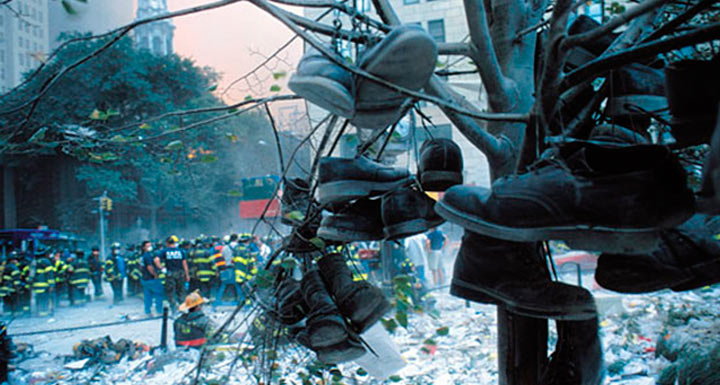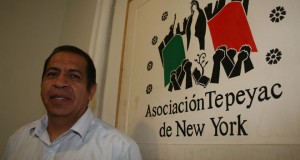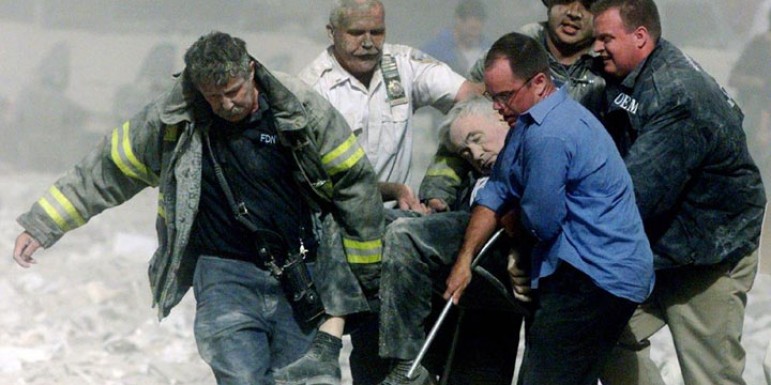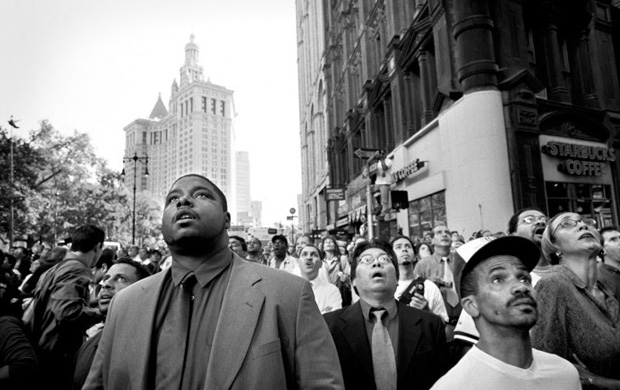
Undocumented immigrants also died on Sept. 11
NEW YORK — To rescue from eternal oblivion the undocumented immigrants who died in the Sept. 11, 2001 attack against the World Trade Center was the difficult mission that Joel Magallán and the Tepeyac Association of New York assumed — against all obstacles.
Tepeyac is a community group with an impressive record as a defender of immigrants.
www.tepeyac.org
Today, 13 years after the attack, Magallán, a former Mexican Jesuit with intense eyes who is executive director of Tepeyac, recalls that he shed not a single tear during the months that followed the tragedy.
“I had no time to cry,” he says. “There wasn’t enough time for anything other than working without rest.”
If one thing has become clear, it is that, had it not been for those efforts, probably no one other than relatives and friends would have known that more than 100 undocumented immigrants — messengers, waiters, cooks — lost their lives in the World Trade Center.

Tepeyac played a fundamental role in telling the world that the terror of that fateful morning did not discriminate between legals and illegals or rich and poor but struck all New Yorkers with its blind brutality.
Saving from anonymity the humanity of those immigrants who, by a twist of fate, died improbably next to bankers, financiers and professionals whose names were known by everyone was the huge task of historical justice carried out by this activist and the group he leads.
For many months after Sept. 11, the Tepeyac office on Manhattan’s 14th Street was the heart of the efforts of the immigrant community to look for undocumented victims and find how to help their families.
Dozens of volunteers answered phones and accompanied the relatives on grim pilgrimages to city hospitals and morgues.
“It was an intense job, but I’m grateful for the solidarity shown by so many people those days,” Magallán says.
His job was far from over, however.
Three years later, other undocumented workers, mostly Mexican, began to arrive in Tepeyac, desperately looking for help. Like many others, they had become ill working in the cleanup of the so-called Ground Zero.
Nobody had asked them about their immigration status or warned them that their health was at risk, when they hired them to work in the ruins of the Twin Towers. Now, the workers needed medical attention and discovered that, because they had no papers, it was practically impossible to get it.
“Nobody ever trained them or gave them the right equipment to work in that toxic environment,” Magallán explains. As a result, hundreds of them became sick with cancer and developed grave respiratory problems.
“We received about 200 workers. They ended up being the worst affected group, because by that time it wasn’t easy to find help. Finally, we had to stop caring for them in 2008, because of the recession. We did all we could,” Magallán says.
Tepeyac had already done a lot, though.
 “In the months after Sept. 11, we helped about 900 Latinos who lost their jobs, 64 percent of them Mexican,” Magallán recalls. “Our purpose was to find them jobs and help their families.”
“In the months after Sept. 11, we helped about 900 Latinos who lost their jobs, 64 percent of them Mexican,” Magallán recalls. “Our purpose was to find them jobs and help their families.”
That was a time when the solidarity of New Yorkers, the horror of 3,000 dead still fresh translated easily into generous contributions, some of which reached Tepeyac. That made it possible to give the unemployed the badly needed money to eat and pay the rent.
“We put the information about the disappeared and the unemployed on our Web page and a lot of people responded,” Magallán says.
At present, the focus of Tepeyac’s struggle has moved toward rescuing the most vulnerable from oblivion, those who — because they lack political power — are invisible in this society. That is why educating the U.S.-born children of immigrants about the importance of voting and turning them into people capable of fighting for laws that favor immigrants is Tepeyac’s new mission.
“We want to teach them that they have the power to change the face of Congress,” Magallán has said.
Today, 13 years after that fateful Sept. 11 and after President Obama reneged his promise and threw overboard the hopes of thousands of undocumented families, the struggle of this Mexican with intense eyes and the group that he leads becomes even more important.


